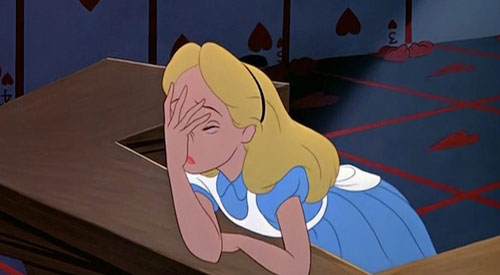New Hampshire has officially decided to conform to public pressure and start reporting the big scary people with mental illness to the National Instant Criminal Background Checks System (NICS) so that they are flagged as ineligible to own firearms. I emphasize the pairing of people with mental illness and criminal because really?
Criminal (n): a person who has committed a crime.
Person with mental illness (n): a person who has a health condition that affects their thinking, mood, or behavior.
But that isn’t my point. Today I’m going to put you in someone else’s shoes. This is called empathy, and legislators could stand to learn some. I am going to briefly place you into a piece of Jane, Joe, and Jeffrey’s lives. These are three people with three different mental health conditions, and all of them are negatively impacted by discriminatory restriction of gun ownership based on mental health status.
Jane is a 26-year-old woman from Pennsylvania. She works as a transcriber in a local court. Jane has bipolar disorder, which means that her moods cycle through periods of extreme highs (mania) and extreme lows (depression). One time, she had such a bad low that she was considering suicide, so she checked herself into a crisis stabilization unit for a few days. Because of that, she is now flagged in the NICS as ineligible to own a firearm due to being “mentally defective” (this is the literal language). Jane’s work as a transcriber means that her face is seen by potentially violent people in criminal trials, and she is scared that one of them might attack her or follow her home to attack her if they recognize her out in public. She would really like to have her own firearm for her own protection, but the government has decided that, even though she’s doing perfectly well right now, she’s too dangerous to own one.
Joe is a 45-year-old man from Oregon. He works as a teller at a bank. Joe has Harm OCD, which means that he has intrusive thoughts and mental images about hurting other people that really distress him and cause him to compulsively check his pulse and pupils for signs that he is getting angry. One time, he told his friend about these thoughts and images, they called the police, and he was placed under a 72-hour psychiatric hold. Because of this, he is now flagged in the NICS as ineligible to own a firearm. What you don’t know about Joe is that he was in an abusive relationship for many years, and his abuser has recently been released from prison. He is scared that his former partner, who has threatened his life on many occasions, is going to come after him. He would really like to have his own firearm for his own protection, but the government has decided that, even though he’s doing perfectly well right now, he’s too dangerous to own one.
Jeffrey is a 70-year-old man from California. He is retired. Jeffrey has a delusional disorder that causes him to think he’s a king. He’s been in and out of hospitals a few times over the course of his life, so he’s been flagged by the NICS as ineligible to own a firearm. Even though Jeffrey has a delusional disorder, he’s never hurt anyone in his entire life, because he’s not a violent person and having a delusional disorder doesn’t make him a violent person. He does, however, believe that he’s especially vulnerable to people breaking into his house and trying to steal his riches or take him captive. It would make him feel a lot better if he had a gun in case someone broke in, but he can’t get one. So instead of feeling comfortable in his own home, assured that he can protect himself, he feels scared and vulnerable. This isn’t very good for his mental health at all.
Most people with mental health conditions are like Jane, Joe, and Jeffrey. Most people with mental health conditions who want to have a gun want them because they have a human need to feel safe. Most people with mental health conditions who want to have a gun do not want them because they want to go on a shooting rampage. Shooting rampages are rare, and while, yes, media is plastered with vivid description of the mental health crisis as it relates to mass murder, here is the truth:
- < 1% of gun deaths occur in a mass shooting scenario.
- 96% of mass shooters are male.
- 57% of mass shooting scenarios are in the context of domestic violence.
- 50% of mass shootings are perpetrated by people between the ages of 20 and 35.
- 44% of mass shooters are white.
- < 1% of mass shooters were categorized as prohibited from ownership due to mental illness.
- 38% of mass shooters were categorized as prohibited from ownership due to criminal activity.
- 48% of gun homicide is committed under the influence of alcohol.
Stop targeting us. If you’re going to start selectively changing gun law to prevent mass shootings, it appears you need to start with white men between 20 and 35 who have been involved in a domestic violence incident or drink alcohol.
But no, we can’t do that, because that would be discriminatory.

